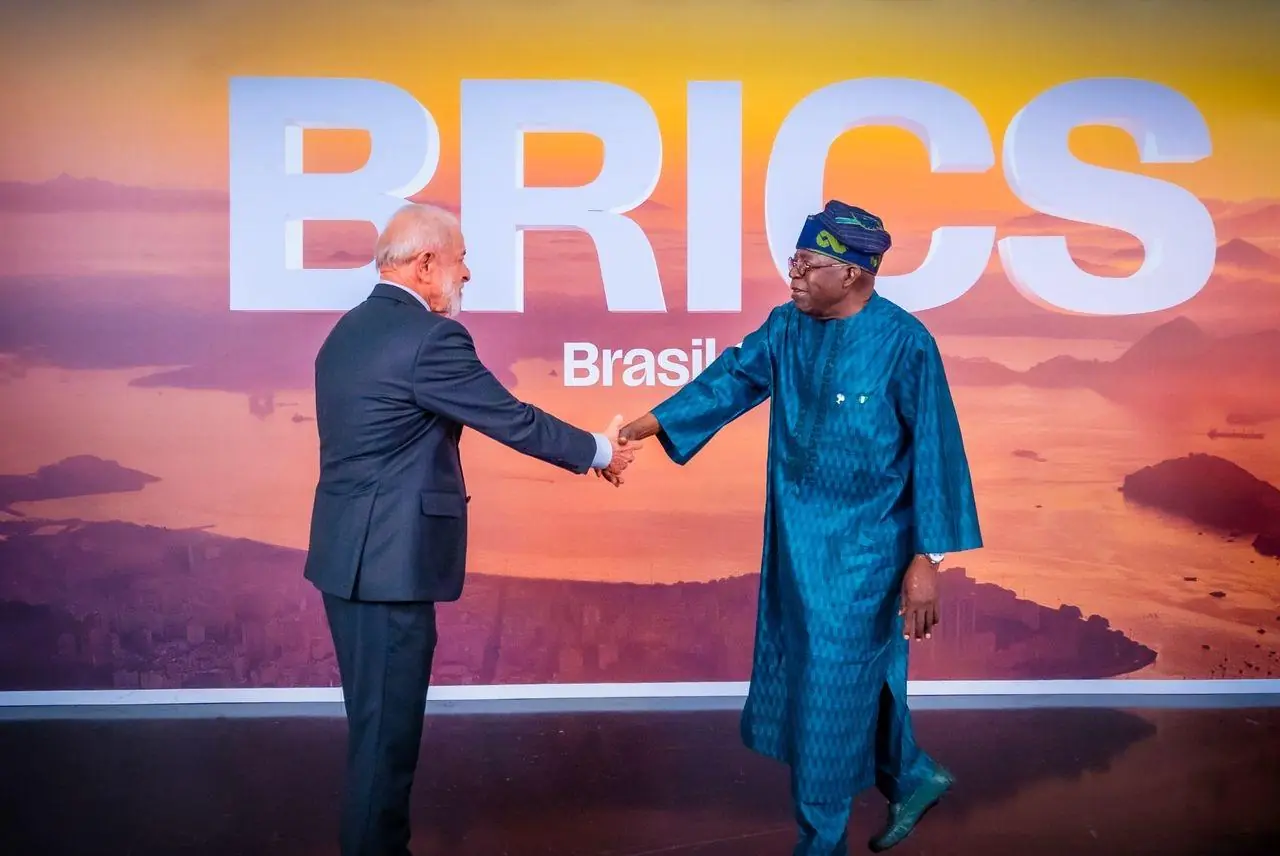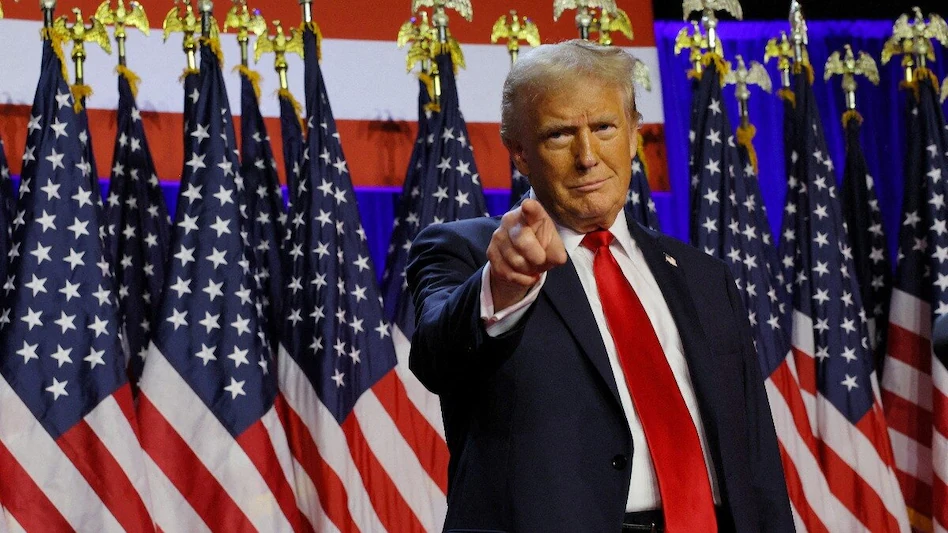Nigeria is set to face new trade challenges after former US President Donald Trump announced that any country aligning with the BRICS group will be hit with an extra 10% tariff on exports to the United States. This move comes as Nigeria recently became a partner country of BRICS, joining other nations in a push for more influence in global trade and politics. The tariff threat has raised concerns about what it means for Nigeria’s economy, its trade with the US, and its place in the world.
What Is BRICS and Why Did Nigeria Join?
BRICS is a group of big and fast-growing countries. The main members are Brazil, Russia, India, China, and South Africa. In recent years, the group has added more countries, including Egypt, Ethiopia, Iran, the United Arab Emirates, and Indonesia. Nigeria joined as a partner country in January 2025, alongside others like Kazakhstan, Malaysia, Thailand, and Uzbekistan.
Nigeria decided to join BRICS because it wants to have a stronger voice in world affairs. The country hopes to benefit from BRICS’ focus on fairer global rules, better trade deals, and support for developing countries. Many Nigerians believe that being part of BRICS can help the country get more investment, improve its economy, and make sure its interests are heard on the world stage.

Why Is Trump Imposing New Tariffs?
Donald Trump made his announcement on his Truth Social platform. He said that any country that supports what he calls the “anti-American policies” of BRICS will face an extra 10% tariff on goods sent to the US. He also said there will be no exceptions to this policy. Trump did not say exactly what he means by “anti-American policies,” but it is clear that he does not like the way BRICS is challenging the US in world trade and politics.
BRICS has been critical of US policies, especially on trade and the use of the US dollar. The group has talked about creating its own currency or payment system to reduce its dependence on the US dollar. Trump sees this as a threat to American power and wants to use tariffs to protect US interests.
How Will the New Tariff Affect Nigeria?
Nigeria exports many goods to the US, especially crude oil, petroleum gas, and fertilisers. Over 90% of Nigeria’s exports to the US are oil-related. The new tariff will make these goods more expensive for American buyers. This could mean that Nigeria sells less to the US, which would hurt the country’s income and could lead to problems for the Nigerian economy.
The tariff could also affect other Nigerian exports, like cocoa, leather, cashew nuts, and processed foods. These products are already struggling to compete in the US market, and the new tariff could make things even harder. Nigerian businesses and farmers may find it difficult to sell their goods, which could lead to job losses and lower incomes.
What Are the Risks for Nigeria?
There are several risks for Nigeria as a result of the new tariff:
- Less Money from Exports: If Nigeria sells less to the US, it will get less money from exports. This could make it harder for the government to pay for important services and could hurt the value of the Nigerian currency, the naira.
- Higher Prices: If businesses have to pay more to export their goods, they may raise prices for Nigerian consumers. This could make life more expensive for ordinary people.
- Fewer Jobs: If exports go down, some businesses may have to cut jobs or even close down. This could lead to more unemployment and poverty.
- Trade War: If the US and Nigeria keep raising tariffs on each other’s goods, it could lead to a trade war. This would hurt both countries and could make the global economy less stable.
How Are People Reacting?
Many people in Nigeria are worried about the new tariff. Business owners, farmers, and government officials are all trying to figure out what it means for them. Some people think that Nigeria should find new trading partners or focus more on trade within Africa. Others believe that Nigeria should try to talk to the US and work out a deal to avoid the tariff.
Here is a quote from a Nigerian trade expert:
“The US is still a major player in Nigeria’s economic and security landscape. But BRICS offers Nigeria a platform to shape a new global order that better serves its interests.”
This shows that Nigeria is caught between two big forces: the US, which is still a very important partner, and BRICS, which offers new opportunities.
What Is the US Saying?
Trump has made it clear that he will not back down. He said that the new tariff will take effect soon and that the US will start sending letters to trading partners to tell them about the new policy. The letters will explain what the new tariff rates will be and what countries need to do to avoid them. Trump has also set a deadline for countries to agree to new trade terms, but if they do not, the tariffs will start on August 1.
What Is BRICS Saying?
BRICS leaders have said they are worried about the rise of tariffs and other trade barriers. They believe that these policies are not fair and could hurt the global economy. At their recent summit in Brazil, BRICS leaders signed a joint statement calling for more cooperation and less conflict in world trade. They want to work together to make the global economy fairer and more inclusive.
What Are Nigeria’s Options?
Nigeria has a few options:
- Talk to the US: Nigeria could try to negotiate with the US to avoid the tariff or to get a better deal.
- Find New Markets: Nigeria could look for other countries to trade with, especially in Africa or other parts of the world.
- Focus on Local Trade: Nigeria could try to do more trade within Africa, especially as the African Continental Free Trade Area (AfCFTA) grows.
- Support Local Businesses: Nigeria could help its own businesses to grow and become more competitive, so they are less dependent on exports to the US.
What Should People Watch For?
People should watch for:
- How the US and Nigeria Talk: If the two countries can agree on a deal, the tariff might not be as bad as feared.
- How Nigeria’s Economy Reacts: If exports go down, it could hurt the economy and make life harder for many people.
- How BRICS Supports Nigeria: If BRICS helps Nigeria with trade or investment, it could make up for some of the losses from the US tariff.
- How Other Countries React: If more countries join BRICS or start to challenge US trade policies, it could change the balance of power in the world.
What Does This Mean for the Future?
The new tariff is a big challenge for Nigeria, but it is also an opportunity. Nigeria can use this moment to rethink its trade strategy and to build stronger relationships with other countries. The country can also use this as a chance to support its own businesses and to make its economy more diverse and resilient.

Quote from Donald Trump:
“Any Country aligning themselves with the Anti-American policies of BRICS, will be charged an ADDITIONAL 10% Tariff. There will be no exceptions to this policy.”
Conclusion
Nigeria is facing new 10% US tariffs because of its partnership with BRICS. This could hurt the country’s exports, income, and economy. But it could also be a chance for Nigeria to rethink its trade strategy, find new partners, and build a stronger, more diverse economy. The next few months will be important as Nigeria and the US try to work out their differences and as the world watches to see what happens next.
Stay woke. Stay tuned. Stay with AKEWE NEWS.